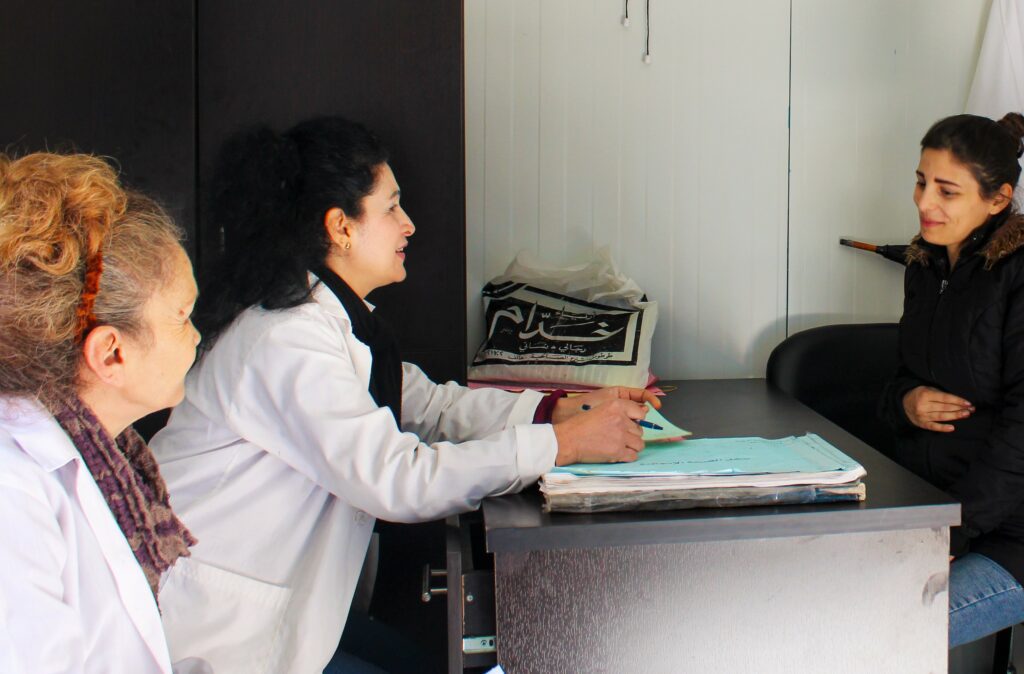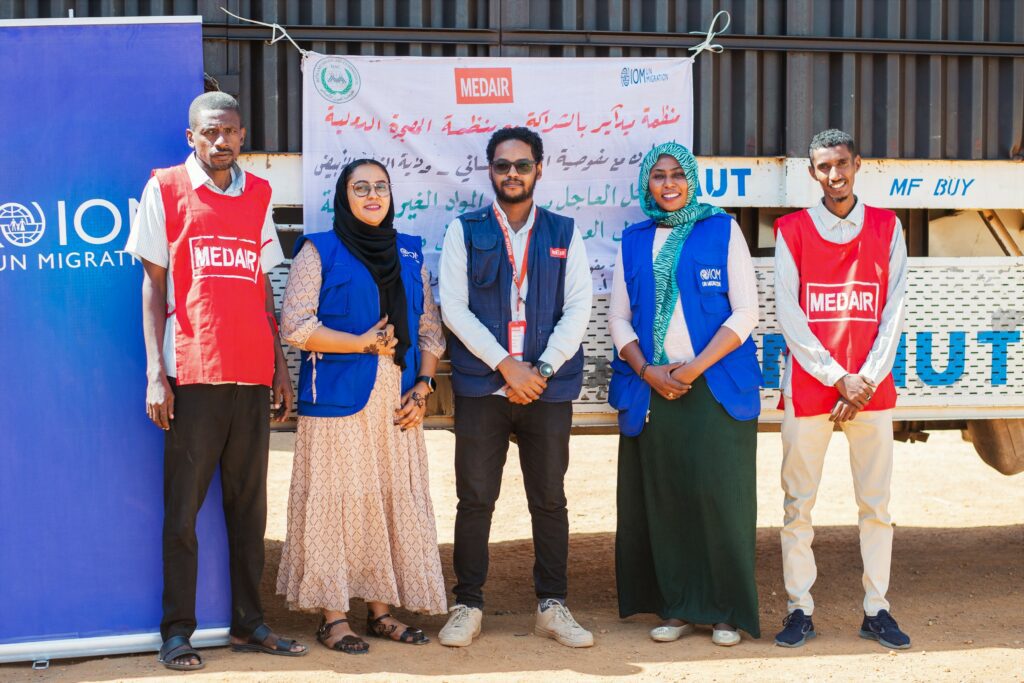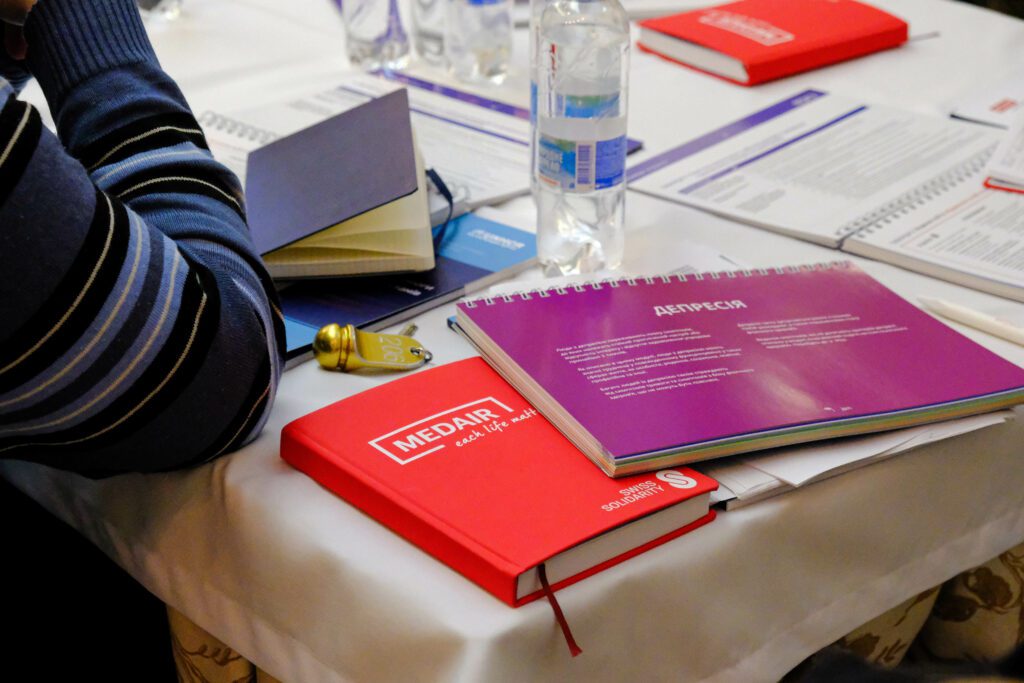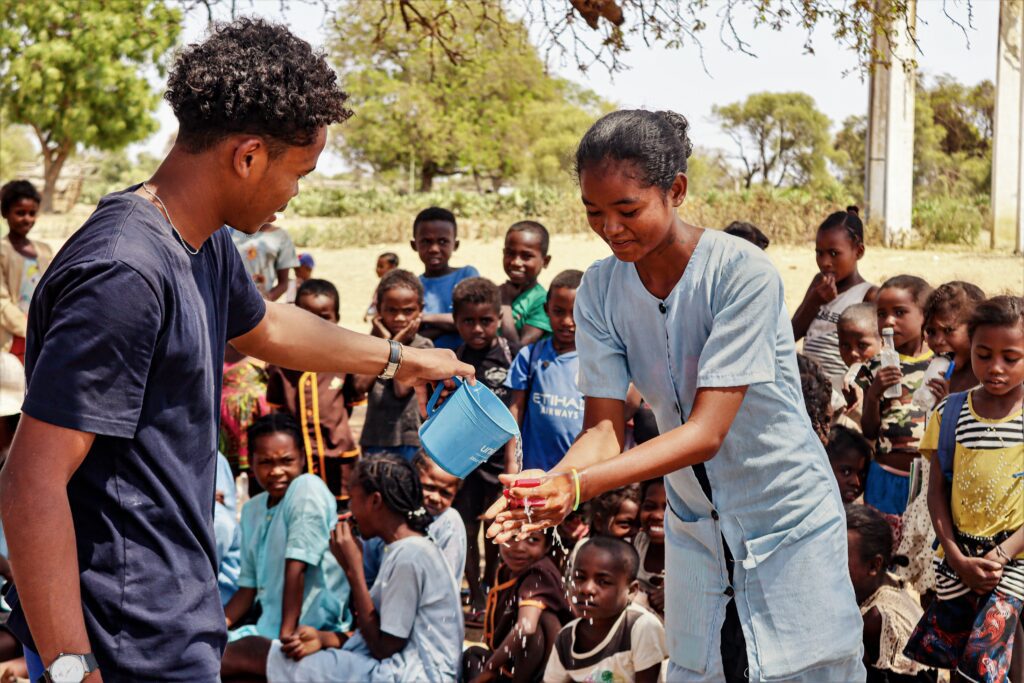In Lebanon, the health sector is on the verge of collapse when the needs for health services are significantly increasing. Among the cash-strapped population, Lebanon’s healthcare system continues to disintegrate rapidly as the country grapples with one of the worst economic crises in the world. Hospitals, Primary Health Centres (PHC) and other health facilities experience daily electricity power outages lasting for hours. This is because of cuts in the national electricity grid, and shortages of diesel fuel for backup generators. This is a significant challenge limiting health centers in providing health services.
Medair is working with the Ministry of Social Affairs (MoSA) to support two Social Development Centres (SDCs) providing primary healthcare to Syrian refugees and vulnerable Lebanese in the Bekaa Valley. Medair supports the SDCs with incentives for medical staff, the purchase of vital medications, subsidizing consultations, and lab tests. These health centres are a priority among other health facilities, as they are the only health centres within their respective areas. The two health centres, which are conveniently located, serve numerous communities and informal settlements, providing a variety type of consultations.
In our commitment to the climate charter, providing innovative and sustainable support to refugees and the communities that host them, Medair in Lebanon also installed solar panels for the two primary health care facilities. Providing sustainable energy to facilities that host refugees and local communities could vastly improve the health and well-being of thousands of people looking to access health services. Solar power is pollution-free: no greenhouse gases are emitted after installation and renewable clean power is readily available. The installation of solar panels is a much more sustainable approach to renewable energy and allows the social development centres to operate as normal with less reliance on fuel, whilst being much better for the environment.
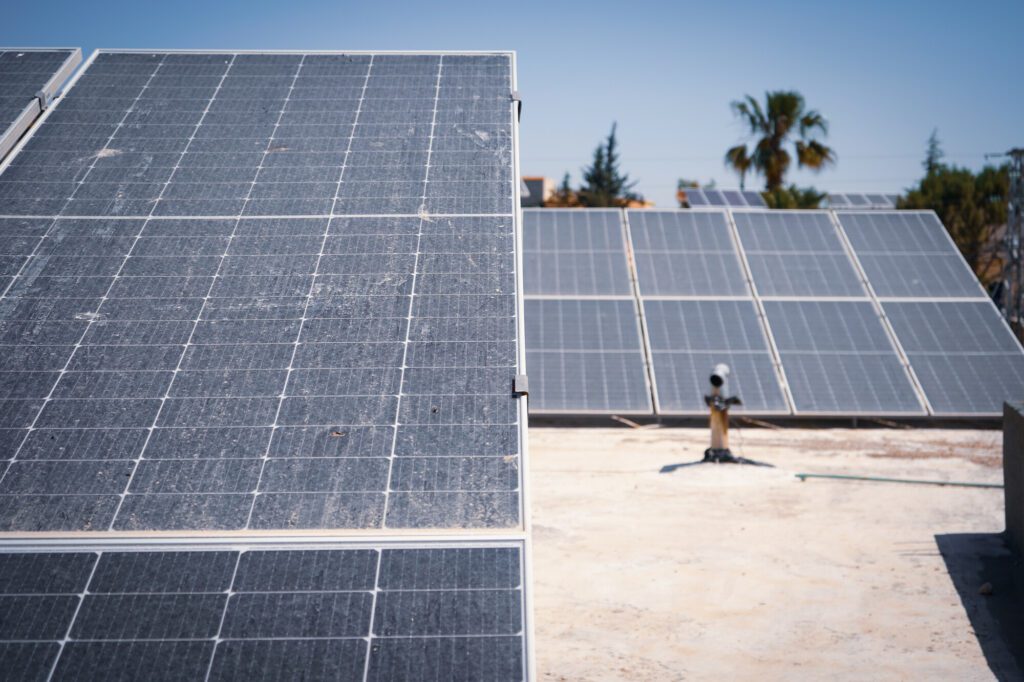
Solar panel cells installed on the rooftop of the Marj Social Development Centre in the Bekaa Valley on the 8th of June 2022. Solar panels have been provided by Medair to both Social Development Centres (SDCs) Marj and Talia, under an institutional donor. ©Medair/Abdul Dennaoui
“Before the solar panel installation, we used to schedule our doctors’ consultations and other services like echo tests based on the availability of electricity, which was always very limited and included a tight window for people seeking health services. Sometimes our staff would tell the people to come at a certain time and they would, but there would be no electricity. There was no way of knowing. The halls of the facility would always remain dark as there was no light coming into the building, which affects the overall mood of staff and the community members that come seeking health services. It’s unpredictable for us to provide proper scheduling to those seeking services, because we simply don’t know when the electricity might be available. As you may already know, the state grid only provides about four hours of electricity per day. On a good day, during the mornings we’re looking at four hours without electricity and another four hours during the afternoon/ evening,” says Nasrat, the maintenance technician at one of the health facilities in Marj.
Nasrat has worked at the Medair supported health centre for several years now and has noticed a significant change in promoting a positive work environment among the staff members at the health facility whilst being environmentally friendly, since the installation of the solar panels. “Thank you all those involved in providing the solar panels to us here at the health centre in Marj. It is such a blessing to say that we have electricity. It added a sense of normality for the staff here. Something as simple as having the lights on at work is contributing a great deal to a positive work environment without harming the actual environment. It’s the only solution to a sustainable way moving forward” says Nasrat.
Medair’s commitment to the climate charter is to reduce the effect of climate change by promoting the use of sustainable renewable energy and addressing the effects of climate change by helping communities with shelter rehabilitation, through the construction of homes that can withstand floods and strong storms.
Climate change is becoming a leading catalyst to humanitarian crisis for vulnerable communities. The effects of climate change are threatening community livelihoods and survival. The rate of the impact of climate change is occurring faster than predicted by scientists. Sustainable renewable energy solutions are becoming crucial in determining the severity of effects caused by climate change.
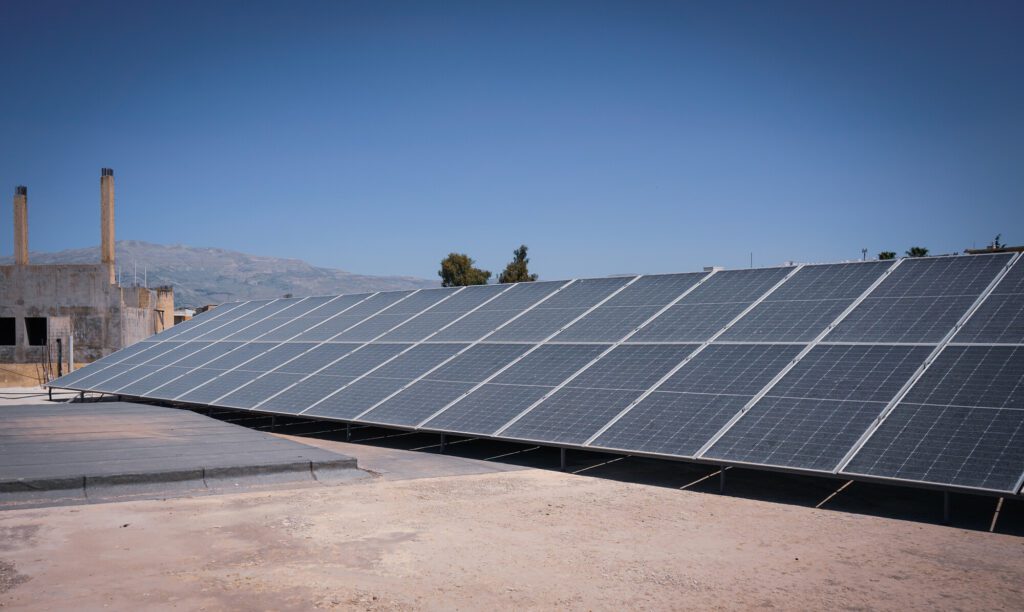
Solar panel cells installed on the rooftop of the Marj Social Development Centre in the Bekaa Valley on the 8th of June 2022. Solar panels have been provided by Medair to both Social Development Centres (SDCs) Marj and Talia, under an institutional donor. ©Medair/Abdul Dennaoui
Medair services in The Bekaa Valley, Lebanon, are funded by the Swiss Agency for Development and Cooperation (SDC) of the Federal Department of Foreign Affairs (FDFA) and Chaine du Bonheur (Swiss Solidarity).
This content was produced with resources gathered by Medair field and headquarters staff. The views expressed herein are those solely of Medair and should not be taken, in any way, to reflect the official opinion of any other organization.


